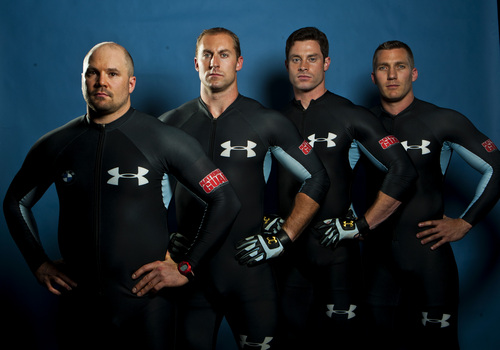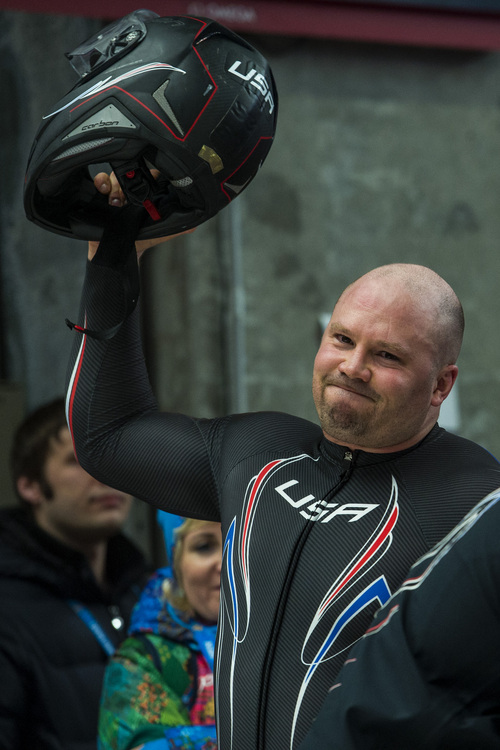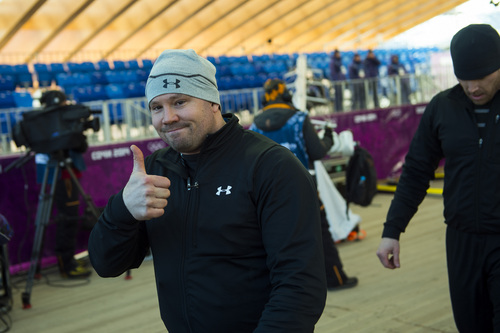This is an archived article that was published on sltrib.com in 2014, and information in the article may be outdated. It is provided only for personal research purposes and may not be reprinted.
Krasnaya Polyana, Russia • Steven Holcomb hopes that sitting down a lot will help him stand on the podium again at the Sochi Olympics.
The bobsled driver from Park City has been trying to heal a calf injury suffered Sunday while starting his route to an historic bronze medal in the two-man race, in order to defend his title in the four-man race that begins Saturday.
So instead of helping push his massive "Night Train 2" sled during training runs at the Sanki Sliding Center, Holcomb has been either sitting inside and letting his teammates do all the work, or just running alongside the sled during its start to minimize the stress on his leg. That's what he did for his final two training runs Friday.
"It held up pretty well," he said. "We're doing the best we can so I don't hurt myself."
Holcomb is among the favorites to win gold, which would make him just the fourth driver to repeat as four-man champion. Russia's Alexander Zubkov is the betting favorite on his home track after winning gold in the two-man race, while Germany's Maximilian Arndt should pose a challenge as well, having won the overall World Cup title.
Alpine's Chris Fogt and Curtis Tomasevicz will join Steve Langton on the push team, after Fogt finished 12th in the two-man race with driver Cory Butner.
Holcomb said that having two more teammates to push start the sled in the four-man race will ease the pressure on his leg. He said it felt "about 75 percent" on Friday, and that the U.S. Bobsled & Skeleton Federation's medical staff has been working on him "around the clock to maximize treatment."
Although Holcomb's primary responsibility is driving, his ability to help push the sled at the start is important, too. Fast start times are crucial in an event that's usually decided by hundredths of a second.
The athletes will take four runs over two days of competition, with the combined time of all four determining the winner.
If Holcomb can reach the podium, the U.S. federation will leave Sochi with medals in all its disciplines — two-man, four-man and two-woman bobsled, as well as men's and women's skeleton — and deliver a victory for the Bo-Dyn Bobsled Project, which built the "Night Train 2" for Holcomb after healing a rift with the federation that led to it ceasing production of all American bobsleds.
The new sled helped Holcomb win the first three four-man races of the World Cup season on North American tracks. He faltered briefly over the next three races in Europe, but won the final race of the season in Konigssee, Germany.
"I hope my best isn't bronze," Holcomb said, "but we'll see. It's going to be a good race, and the Russians are going to be fast again. They know this track better than anybody. The Latvians are fast, the Germans are fast, the Brits are fast, the Swiss are fast. The list goes on ... it's a tough four-man field. Luckily we're fast too, so I feel pretty good and I know my team us champing at the bit to get going."







